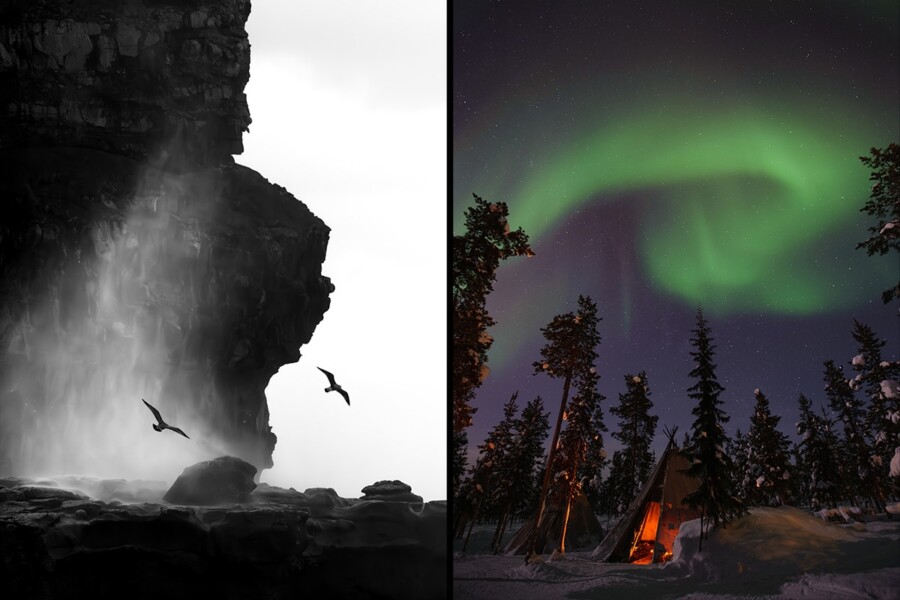Share
Will Social Media Change the Way Photographers Use SEO?
I recently read a fantastic blog post by designer and photographer Don Giannatti. In it, he mentioned (briefly) that search engine optimization (SE...

I recently read a fantastic blog post by designer and photographer Don Giannatti. In it, he mentioned (briefly) that search engine optimization (SEO) as we know it will change dramatically over the next few years. This left a few people wondering how much will it change, and what photographers should do today if they want to stay ahead of the curve.
In the post, titled “I am more interested in thriving photographers than thriving Flash developers…” (more about that later), Giannatti says, “While SEO as we know it will probably be done in the next 24 months, there is still a lot of energy being expended in finding stuff on the web [such as] Google, Bing, AOL, Yahoo… all billion dollar businesses based on being able to find stuff.”
So, what will change, and does this mean that our current SEO efforts going to waste? According to Giannatti and others in SEO and social media circles, social media sites (like Facebook and Twitter) are going to become a big part of the ranking algorithms used by search engines, but SEO is not going to “go away” or become unimportant. You will continue to benefit from your SEO hard work now, and into the future.
But honestly, we’ve known that social media would have a big impact for a while. Back in October, as an indication of what’s coming, VentureBeat wrote about Bing’s partnership with Facebook. The story mentions that the two companies are working together–Bing providing search results inside of Facebook, and also personalizing regular search results using Facebook data.
In other words, your friend’s “likes” in Facebook will play a role in search results in Bing. You should also expect to see recommendations from members of your own social network, people you know and trust, popping up in search results.
With all the rich interaction data stored within Facebook, some argue that it will rival traditional search engines, and some people are taking this one step further, saying that social media sites are going to completely replace search engines as a way of finding things on the Internet, but I think that’s going a little too far.
Facebook is great for passive discovery (a trusted friend makes a suggestion that might be useful later on), while search engines are there to help people find something specific (when there is an immediate need for it.) Although they work well together, it’s important to remember that these are still two very different things. Photographers shouldn’t ignore either of them.
Similarly, Twitter is great for getting a pulse on what’s happening now. But if you searched for something specific like “Nikon 85mm review,” you’d be hard pressed to find relevant results. One obvious reason why is that SEO (and information retrieval in general) is contingent on the quality of information that’s indexed. That’s why SEO starts with having good on-page content. A Facebook Wall post or Tweet simply can’t contain the level of information depth that a full article on the Internet can contain.
EXAMPLES OF BOTH
As social media data continues to make its way into Google, Yahoo, and Bing – photographers with a large social media networks will have an edge over those who don’t.
Imagine that there are two wedding photographers. One has a large social network with many “fans” and “likes”, and one has no social network at all. Which photographer is going to have the edge? This is particularly true for wedding photography where referrals are commonplace. If you see your friend “liked” their photographer when you log in to Facebook, you’re automatically being influenced.
What can you do today, right now, to make sure that you’re well-positioned as search engines evolve?
1) If you haven’t done so already, get into the game.
Participate in social media. Get an account with Facebook, Twitter, LinkedIn, and/or any of the hundreds of other social media sites that have popped up within the past few years. I don’t suggest joining every site in the world, but I do suggest that you take a look around and find ones that are a good match.
The website SEOmoz maintains a helpful list of the top 101 social media sites. The list contains the most popular and effective sites for marketing your own business.
2) Place a Facebook “like” button with every image, and page, on your website.
It’s important to get your content (images, words, ideas) into the world of social media. Doing so is not difficult. If you are already running a WordPress blog, there are several plugins that will accomplish this for you. Otherwise, Facebook has a Like Button configurator that will create code that you can add to your site.
(If you have a Flash-based website, sorry – you’re out of luck. You can’t use either of these options.)
3) Maintain a blog, and encourage social sharing of your posts.
A blog is the best place to send your social media traffic. It allows you to expand on an idea and share more content than you can with 140 characters. Blog posts are text-based, simple to link to, and are easily indexed by search engines.
The name of the game is to create content (blog posts) that get both links, and likes. The math is simple: The more of these that you get, the better your site will rank in search engines.
4) Make it easy for people to talk about you.
If sharing your content (aka: “word of mouth”) is important to you (and it should be) then you need to make it as easy as possible for people to spread the word. Remember, there are hundreds of social media networks out there, and it’s a good practice to allow people to share links to your content on the networks you may not personally belong to.
A cool WordPress plugin called “SexyBookmarks” will let you choose from 88 different social media sites, and install a row of attractive icons at the bottom of each post for easy sharing.
We just added the capability to “Ask Grover Anything” or “Ask Allen anything” via links in the right column of our blog. You might consider the feature frivolous, but we’re increasing accessibility which hopefully will increase our credibility and trustworthiness on the Internet.
5) Continue to be mindful of traditional SEO efforts.
Traditional SEO methods, as outlined in our free 2010 SEO Cookbook for Photographers, are still valid, and should be continued. The changes that are coming won’t replace these efforts. Instead, social media will be an additional (potentially very important) factor within search engine ranking algorithms.
Oh, by the way, as for the main topic of Giannati’s post — the use of Flash in photographer websites — his points were spot-on and I ended up re-tweeting his story enthusiastically. If you have a Flash-only website, or if you are considering one, I highly recommend reading his post. It just might change your mind.
If you’re truly interested in SEO, you should avoid Flash, and embrace social media — today.


